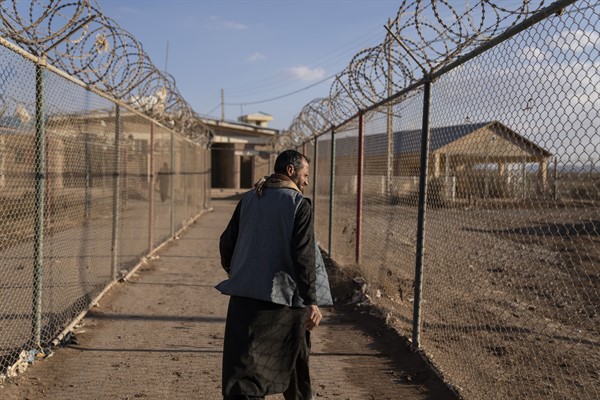More than 22 million Afghans, many of them children, are at risk of starvation and exposure to cold this winter, The New York Times reported this week. Afghanistan was already experiencing food insecurity prior to the United States’ withdrawal, due to drought and harvest failure, but now, according to the United Nations Development Program, more than 8 million are facing famine.
Poor governance by the Taliban and their restrictions on women have contributed to general insecurity. But the country’s dire economic situation—which saw millions of dollars of foreign aid, constituting 43 percent of its gross domestic product, disappear overnight—has also dramatically worsened due to three factors largely within the United States’ control.
First, in the immediate aftermath of the Taliban’s rout of the Afghan government in August, the U.S. chose to freeze the $9 billion of Afghan reserves held in U.S. banks. Second, the U.S. chose to maintain its sanctions on financial transactions with the Taliban, which have been in place since before the 9/11 terrorist attacks and are now hobbling the Taliban’s efforts to govern. Third, the U.S. and European Union have made the development aid on which the Afghan state depends conditional on the Taliban improving human rights conditions. The World Bank and International Monetary Fund have gone along with this, hamstrung by Washington.

